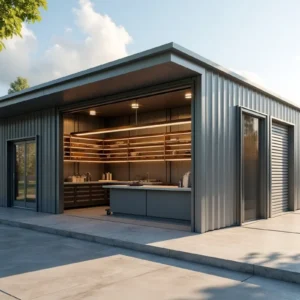In today’s real estate market, being equipped with the right knowledge about home sales can make all the difference. Whether you are a seller receiving offers or an agent navigating the waters of negotiation, understanding how to handle these situations effectively is crucial.
Did you know that a well-structured counteroffer can significantly increase your chances of closing at a desirable price? This article will delve into strategies that can enhance your negotiating skills, leading to successful home transactions. Keep on reading below.
Contents
Understanding Offers in Home Sales
Receiving an offer on your home is an exciting milestone, but it also comes with its challenges. When you receive an offer, it’s essential to evaluate it thoroughly. Consider not just the offered price but also the buyer’s financial position, the contingencies they propose, and their closing timeline. Each element of an offer can provide insight into the buyer’s motivation and seriousness.
When reviewing an offer, it’s important to look at a few key details before making a decision. Start by checking if the price matches your expectations and the current market value of your home.
Pay attention to any contingencies, such as inspections or financing requirements, as these can affect how smoothly the sale goes. Lastly, consider the buyer’s situation-knowing if they’re pre-approved or serious about the purchase can help you decide how to respond.
Crafting Counteroffers
The response to a buyer’s offer can often set the tone for the rest of the negotiation process. When crafting a counteroffer, clarity and professionalism are key. You want to ensure that your response is not only comprehensive but also courteous. A well-structured counteroffer shows that you are serious about the sale and encourages the buyer to remain engaged.
When making a counteroffer, be clear about what you want, including your price and any changes to the terms. Keep a friendly and positive tone to help the negotiation go smoothly. If you ask for a higher price, explain why your home is worth it, such as upgrades or a good location.
Negotiation Strategies That Work
Successful negotiation requires a mix of assertiveness, flexibility, and patience. It’s essential to know when to stand firm and when to compromise. The goal should always be to reach an agreement that satisfies both parties.
Before you negotiate, know the lowest price you’ll take, especially in a growing area. Listen to the buyer to see where you can agree. If homes are selling quickly, you can be more confident in your offer.
The Art of Closing the Deal
Once an agreement is reached, stay proactive throughout the closing process. This stage requires attention to detail and adherence to timelines. Clear communication can mitigate misunderstandings, ensuring a smooth transition from offer acceptance to final sale.
Successful Home Sales Start Here
Learning how to handle offers and counteroffers can help you get the best deal when selling a home. These skills are useful whether you’re selling your own house or helping someone else. Being prepared and knowing what to expect makes a big difference. For extra help, talk to a real estate expert who can guide you through the negotiation process and help you make smart choices.
For more related topics, check out the rest of our blog!




